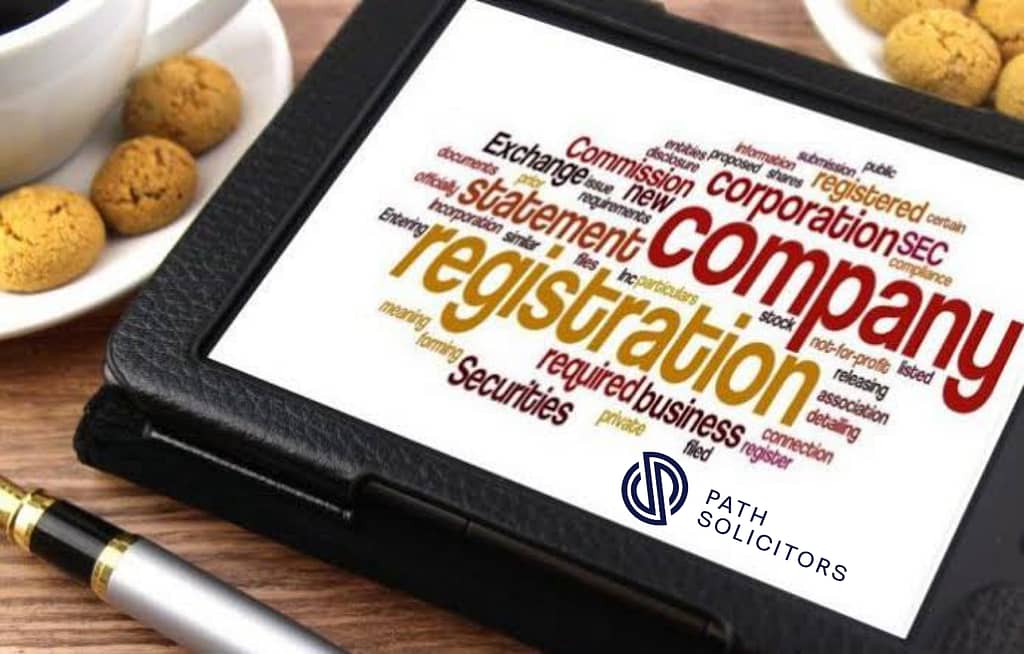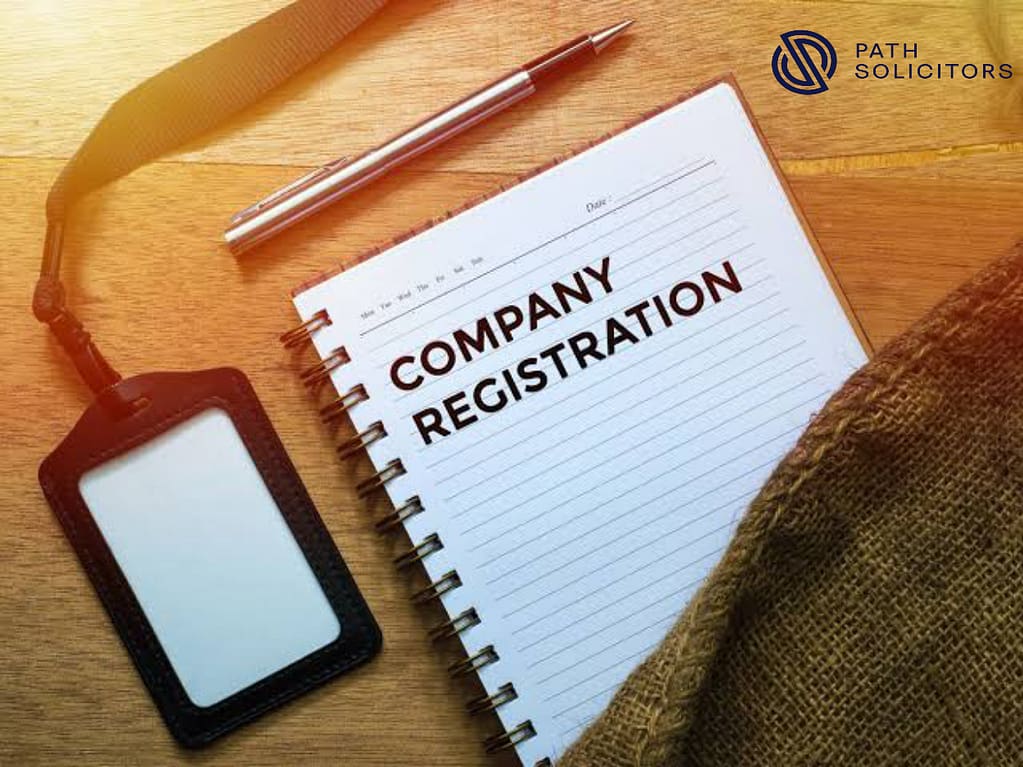THE COMPANIES AND ALLIED MATTERS ACT (CAMA), 2020 AT A GLANCE
a Publication by Path Solicitors…
On the 7th of August, 2020, President Muhammadu Buhari signed into law, the new amendments to the Companies and Allied Matters Act. This amendment has been long awaited by lawyers, companies, SMEs, business community and generality of the public locally and internationally. This Amendment repeals the relevant Sections of the CAMA, Cap C20, 2004. It is the most significant piece of legislation in three decades and seeks to provide more protection for small businesses and startups.
The 2020 Act extends from Part A to Part F as against Part C under the old Act and has 870 Sections.
Below are the salient provisions of CAMA 2020:
Part A – Corporate Affairs Commission
- GOVERNING BOARD: Section 2 provides for the governing board which shall be responsible for performing the functions of the Corporate Affairs Commission (Hereinafter referred to as “the Commission” or “CAC”) and makes other incidental provisions for the effective functioning of the Commission.
- POWERS OF THE CAC: The new CAMA also substantially alters the powers of the Corporate Affairs Commission, giving them more powers to fix fees through regulation and extended powers over the proprietors of Incorporated Trustees under Part C.
Part B – Incorporation of Companies and Incidental Matters
- SINGLE MEMBERSHIP COMPANY: Section 18 amends the previous provision of Section 18 by providing in Subsection 2, that one person can now become a shareholder of a company, as against the previous requirement for two persons to form a company. In this context, the person cannot be a minor (a person below the age of 18). This provision is different from the previous one which prohibits the forming of a company by less than two persons.
- SUBSTITUTION OF AUTHORIZED SHARE CAPITAL TO MINIMUM SHARE CAPITAL: Section 27 amends the previous Section 27(2) by replacing the words ‘Authorized Share Capital’ with ‘Minimum Share Capital’. This implies that promoter(s) of a business are not required to pay for or allocate shares that are not needed at the specific time of incorporation.
- STATEMENT OF COMPLIANCE: Section 40 (1) amends the previous Section 35 by introducing the Statement of Compliance (SOC) signed by an Applicant (or agent), without the need for a Lawyer or Notary Public to attest to Declaration of Compliance (DOC). SOC is a requirement of the law that indicates that the applicant has complied with the registration and requirements. This means that the Statutory Declaration required to be signed by a lawyer has been dispensed with.
- OPTIONAL USE OF COMMON SEAL: Section 98 amends the previous Section 74 by abolishing the mandatory use of common seal, as its use by companies is now optional, NOT mandatory. This changes the previous position making the use and ownership of a common seal compulsory.
- PROPER EXECUTION OF DEED BY COMPANIES WITHOUT COMMON SEAL: Section 102: A document is validly executed by a company as a deed if it is duly executed by the company and it is delivered as a deed. A company may execute a document as a deed without affixing a common seal on the document. A deed is duly executed by the company if signed by: a director and a secretary; or at least two directors; or a director in the presence of at least one witness who shall attest the signature.
- DISCLOSURE OF BENEFICIAL OWNERSHIP OF SHARE: Section 119 emphasizes transparency in terms of control in a company. It requires that persons with significant control in a company disclose its shareholding to other shareholders. For example, anyone who has person(s) holding shares on their behalf as trustees or proxies, whilst being shareholders themselves in same company, are expected to disclose such relationship for transparency.
- DEFINITION OF SUBSTANTIAL SHAREHOLDER IN PUBLIC COMPANIES: Section 120 defines a substantial shareholder of a public company as a person that holds by himself or through his nominees 5% of the unrestricted voting rights at general meetings.
- REDUCTION IN FILING FEES: Section 223 (12) reduces Filing Fees for Registration of Charges to 0.35%, which implies a reduction of cost in fees relating to charges. This is expected to reduce cost of filing charges up to 65%[1]
- ORDINARY BUSINESS AT AGM: Section 238. Disclosure of the remuneration of managers is now included in the ordinary business of an AG.
- ELECTRONIC SERVICE OF NOTICE OF MEETING: Section 244(3). As against the old provision where personal service, or service by post is recognized, the Bill provides for service of notice by electronic email in addition to personal service or by post.
- CHAIRMAN OF PUBLIC COMPANY TO BE SEPARATE FROM CEO: Section 265 (6) provides that Firms cannot appoint one (1) Director to hold the office of Chairman and Chief Executive Officer of a private Limited Liability Company. This enhances minority shareholder protection and prevents hoarding of powers.
- NUMBERS OF DIRECTORS OF A SMALL COMPANY: Section 271 Small company may have one director.
- MULTIPLE DIRECTORSHIP: Section 307 (1): One single person cannot be a Director in five (5) different Public Limited Liability Companies at the same time. This will reduce fraud and encourage creation of jobs.
- COMPANY SECRETARYSHIP: Section 330 exempts Private Limited Liability Companies from compulsorily appointing Company Secretary. The appointment of a Company Secretary is compulsory for public companies and optional for private companies.
- REDEFINITION OF SMALL COMPANIES AND SMES: Section 394. The definition of a small company was altered to state that a small company is a private company which has:
• a turnover of not more than One Hundred and Twenty Million Naira
• net assets of not more than Sixty-Five Million Naira.
- NON-MANDATORY APPOINTMENT OF AUDITORS BY SMES/SINGLE OWNED COMPANIES: Section 402 provides that Small companies or companies having one shareholder are NOT mandated to appoint auditors at AGMs to audit their financial records. These companies are exempted from presenting audited accounts in respect of a financial year.
- ADDITIONAL COMPANY RESCUE REGIMES: Section 434 – 549; 718 – 721 form a framework protecting companies in distress and preventing insolvency by providing options other than winding up. Insolvent Companies can now be rescued from distress and liquidation through the following options: Voluntary Arrangements, Administration, and Netting.
- ELECTRONIC FILING, ELECTRONIC SHARE TRANSFER, E-MEETING(VIRTUAL MEETINGS): Section 861 provides for electronic filing of documents, electronic share transfer, and electronic meetings for Private Limited Liability Companies (LLC).
- Section 176(1) also provides that instruments of transfer of shares shall include electronic instruments of transfer.
- The new CAMA also provides for remote or virtual general meetings, provided that such meetings are conducted in accordance with the Articles of Association of the company. This will facilitate participation at such meetings from any location within and outside the shores of the country, at minimal costs. This is especially relevant today given the disruptions caused by the Covid-19 pandemic to company operations around the world.
- Section 869 (7) of the CAMA 2020 provides that any individual, firm or company registered under the Repealed Act, immediately before the coming into operation of the new legislation, shall be deemed to be registered under and in accordance with the Repealed Act. .
Parts C, D & E
Part C provides for the Limited Liability Partnership; Part D provides for the Limited Partnership; while Part E provides for Business names.
- ADDITIONAL BUSINESS STRUCTURES: The new Act, introduces Limited Liability Partnerships(LLPs) and Limited Partnerships(LPs) in Sections 746 & 753. This gives startups better protection in the event that they elect to enter a partnership agreement by protecting their rights, assets and defining obligations without saddling them with the responsibilities of incorporating a new company. LLP must have at least two designated partners who would oversee the day-to-day activities of the partnership and the membership is unlimited. The LP, on the other hand, must have at least one limited partner and one general partner; the latter is tasked with the day-to-day management of the partnership. The membership of the LP is maximum of twenty partners.
Furthermore, the provisions of the Partnership Act 1890 shall govern LP whereas detailed provisions for the operations of LLP are specified under the New Act. Where there is any inconsistency between the provisions of the New Act and the provisions of the Partnership Act, the provisions of the New Act will prevail.
Part F – Incorporated Trustees
- MERGERS OF NGOs: section 849 extends merger beyond LLCs to Incorporated Trustees. This implies that two or more NGOs, social entrepreneurs with different registered organizations, with similar goals can merge to form one (1) single organization under such terms and conditions as may be prescribed by the CAC.
- CONSENT OF ATTORNEY-GENERAL DISPENSED WITH: Consent of Attorney General before incorporation is not required. However, the application for registration must be advertised in two national newspapers by the Corporate Affairs Commission.
- LIABILITY OF MEMBERS: The minimum guaranteed liability of members in the event of the company being would up is increased to One Hundred Thousand Naira.
- CLEARER PROVISIONS AS TO INCORPORATED TRUSTEES: Under the 2004 Act, provision is made on the procedure for removing, replacing or adding a trustee. While the 2020 Act in chapter 4, makes elaborate provision on how the day-to-day affair of an association under part F could be run and further gives the Corporate Affairs Commission the power to appoint interim manager to avoid vacuum in running the affairs of the association. Further more, the power given to CAC under this chapter are regulated and exercise-able in some instances through court intervention.
In essence, where the commission makes enquiry and discovers that an association is being run in contravention of the Act, particularly where it is proven that there is mismanagement of the association by the governing body of the association, the Commission can wield its wide powers under chapter 4 of the Act which power are wider in the 2020 Act.
- CRIMINAL OFFENCES UNDER CHAPTER 4: Contravention of any of the provision of chapter 4 attract not just, replacement, removal or suspension, it is a criminal offence which attract 6 months imprisonment upon conviction or fine as the court may deem fit. The Act now gives the court the discretion to fine contraveners or convicts as it deems fit as against the ridiculous fines of 50 or 100 naira provided in the 2004 Act. There is provision for one year imprisonment for undischarged bankrupt or convict; While the old Act provides 50 naira fine per day.
- POWER TO DECLINE REGISTRATION: The 2020 Act empowers the commission to decline registration of an incorporated trustee where it is evident that such trustee has in the past been involved in fraudulent activities locally or internationally.
- SUBMISSION OF PURPOSE: Another very important innovation in the 2020 Act are contained in chapter 6 and 7 of the Act. trustees of an association are required to submit for the purpose of accountability; to the commission a bi-annual statement of affairs of the association.
- STIPULATION OF FINES BY CAC REGULATIONS: As may have been observed earlier, there has been an all round amendment to the Act, particularly those relating to fines by either the Corporate Affairs Commission or the court, the Commission and the court now have the power to stipulate penalty for contravention by trustee(s). The new CAMA also substantially alters the powers of the Corporate Affairs Commission, giving them more powers to fix fees through regulation and extended powers over the proprietors of Incorporated Trustees under Part C.
Part F is made up of 7 Chapters and 28 Sections. Below are the chapters and the relevant innovations:
- Chapter 1 defines incorporated trustees and extensively laid down the requirements and procedure for registration under the Act which is mutatis mutandis with the requirements and procedures under the 2004 Act save for the recently made regulations made by the Commission pursuant to the Act.
- Chapter 2 talks about changes in registered particulars of incorporated trustees.
- Chapter 3 gives a breakdown on Council, Powers, Income and Property.
- Chapter 4 elaborates on suspension of trustees and appointment of interim managers etc.
- Chapter 5 relates to common seal and contracts.
- Chapter 6 relates to account and annual returns.
- Chapter 7 states the procedure for merger and dissolution of a registered .
Conclusion
The provisions explained above are the relevant amendments made to the Companies and Allied Matters Act, Cap C20, 2004. We applaud the National Assembly for this innovation and urge that other obsolete legislations be reviewed and amended to suit changing times. There have been calls from several quarters that other inferior legislations such as Corporate Affairs Regulation, Companies Proceedings Rules and the Companies Winding up Rules would also be given attention to enhance and aid effective and successful implementation of the laudable innovations introduced in the 2020 Act.
[1] HIGHLIGHT OF POSITIVE CHANGES TO THE COMPANIES AND ALLIED MATTERS ACT ( CAMA ) VIA THE PASSAGE OF THE CAMA BILL 2020; Available at¸< https://www.lawyard.ng/wp-content/uploads/2020/08/Info-on-CAMA-2020.pdf> accessed on 11/08/2020



